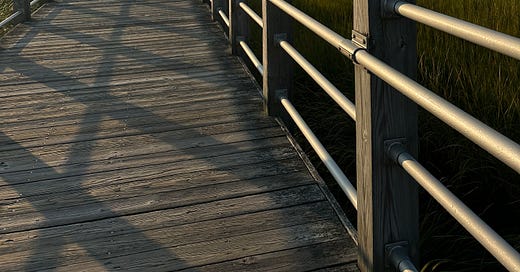Grace Paley's autumn poetry
Last year, I went on a Grace Paley kick after listening to “Friends” on the New Yorker Fiction Podcast.
There’s much I admire about Paley’s work: the sense of humor, the compassionate but unsentimental portrayal of the domestic sphere, the broader ethos behind her writing and political activism both. She told the Paris Review that it was the hours spent chasing her children at the playground that made her into both a writer and an activist:
I had my kids when I was about twenty-six, twenty-seven. I took them to the park in the afternoons. Thank God I was lazy enough to spend all that time in Washington Square Park. I say lazy but of course it was kind of exhausting running after two babies. Still, looking back I see the pleasure of it. That’s when I began to know women very well—as co-workers, really. I had a part-time job as a typist up at Columbia. In fact, when I began to write stories, I typed some up there, and some in the PTA office of P.S. 41 on Eleventh Street. If I hadn’t spent that time in the playground, I wouldn’t have written a lot of those stories. That’s pretty much how I lived. And then we had our normal family life—struggles and hard times. That takes up a lot of time, hard times. Uses up whole days.
With this admiration in mind, I’m sharing a few of Paley’s poems below. Both feel particularly apt this mid-September.
September
Then the flowers became very wild
because it was early September
and they had nothing to lose
they tossed their colors every
which way over the garden wall
splattering the lawn shoving their
wild orange red rain-disheveled faces
into my window without shame
Autumn
1
What is sometimes called a
tongue of flame
or an arm extended burning
is only the long
red and orange branch of
a green maple
in early September reaching
into the greenest field
out of the green woods at the
edge of which the birch trees
appear a little tattered tired
of sustaining delicacy
all through the hot summer re-
minding everyone (in
our family) of a Russian
song a story
by Chekhov or my father
2
What is sometimes called a
tongue of flame
or an arm extended burning
is only the long
red and orange branch of
a green maple
in early September reaching
into the greenest field
out of the green woods at the
edge of which the birch trees
appear a little tattered tired
of sustaining delicacy
all through the hot summer re-
minding everyone (in
our family) of a Russian
song a story by
Chekhov or my father on
his own lawn standing
beside his own wood in
the United States of
America saying (in Russian)
this birch is a lovely
tree but among the others
somehow superficial


